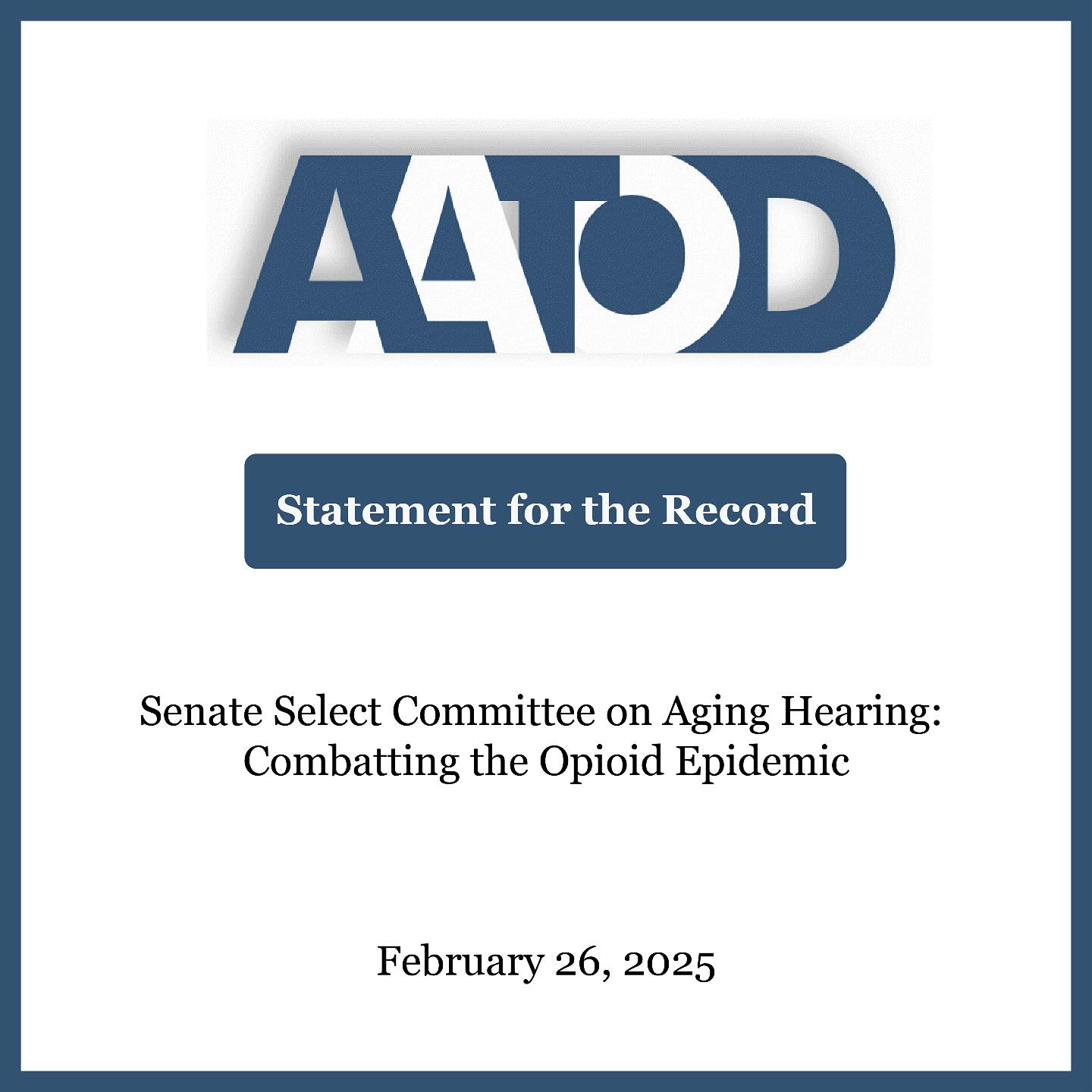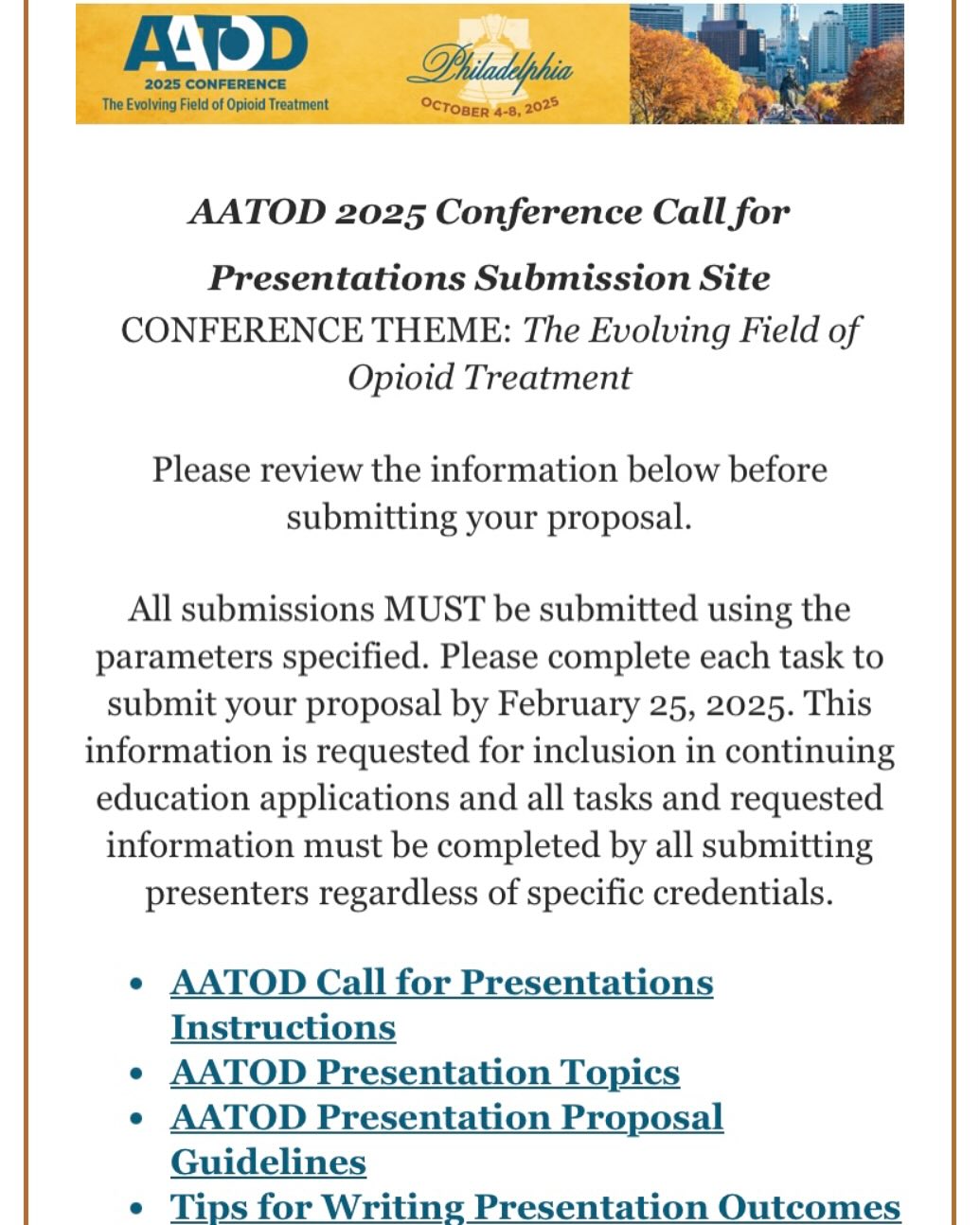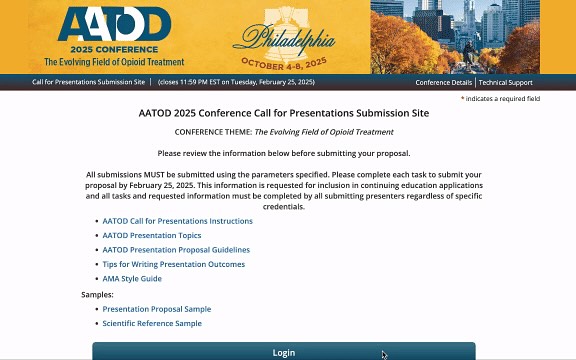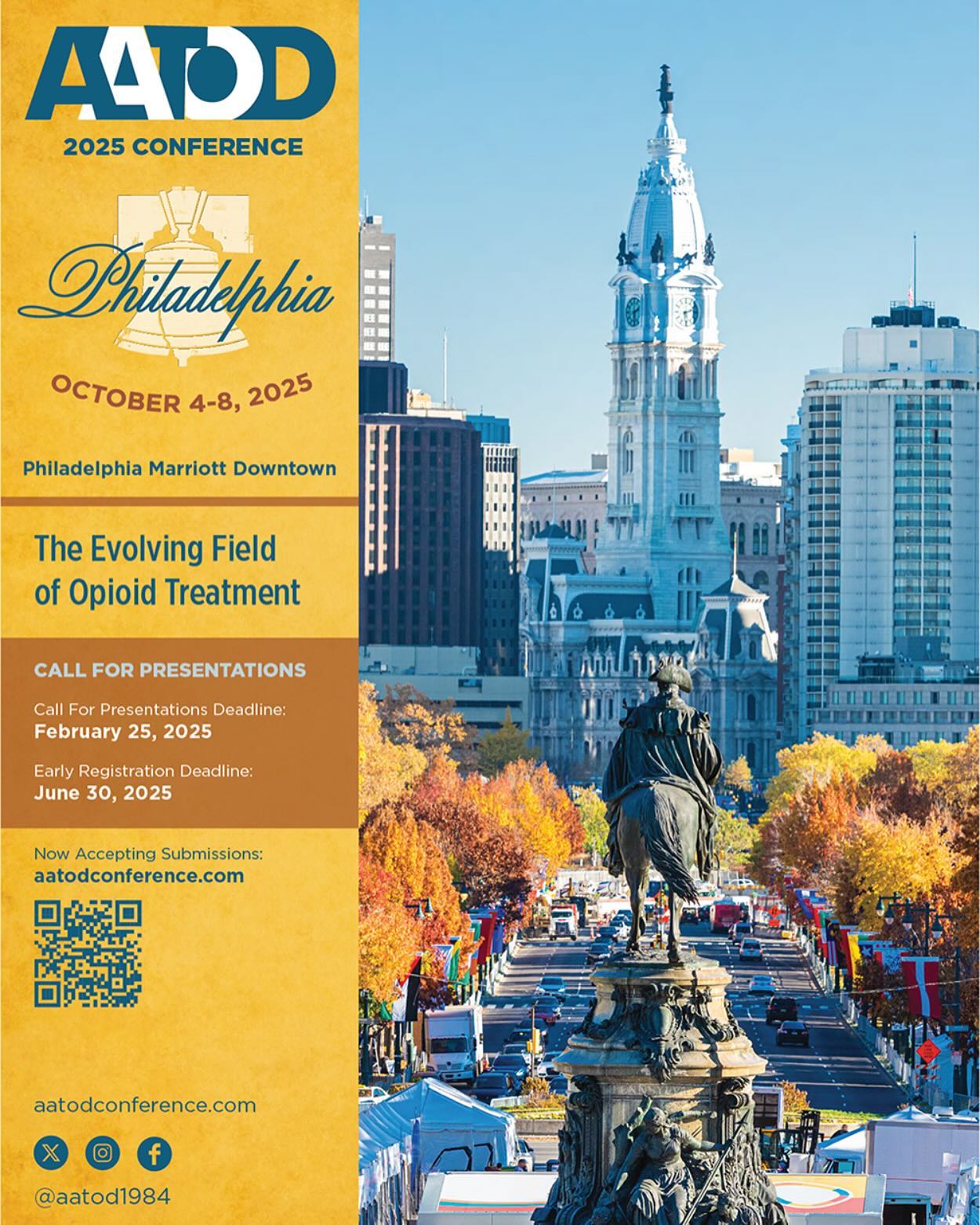AATOD’s Five-Year Plan
2012-2016
Introduction
Conference Development/Training
AATOD has used its conferences since 1984 as a method of showcasing leading AATOD initiatives which work in conjunction with its five year plan. The content of the conferences has evolved throughout AATOD’s history to reflect critical developments in the field of opioid addiction treatment. We developed the Clinician’s Training Course, Media Training Course, Hepatitis Training Events, and Risk Management opportunities as part of this conference through pre-conference sessions. We will continue to promote evidence based practices and patient centered care through these conferences in addition to supporting patient advocacy training and methods of improving program operational activities.
Health Care Reform
The AATOD Board of Directors is of the judgment that Health Care Reform is one of the most critical issues affecting our patients and the future of our treatment system. AATOD has been working with the Legal Actio nCenter and the Coalition for Whole Health in developing policies in support of how Medication Assisted Treatment for Opioid Addiction will be made available to Americans who would benefit from such treatment. AATOD will continue its partnership with the Coalition in working with state provider organizations as a method of advocating for our patients. We also realize that this is an especially daunting task given the weak economy and shrinking state budgets and advise our members to work with regional SAMHSA and DHHS administrators and state Medicaid representatives to ensure service continuity for our patients as Health Care Reform evolves.
Criminal Justice
AATOD has continued its work with representatives of the Criminal Justice System, which was initially articulated in the “Challenges/Solutions” policy paper of 2011. The Substance Abuse and Mental Health Services Administration convened a groundbreaking meeting during October 2011, “Medication Assisted Treatment for the Criminal Justice Population”. SAMHSA coordinated the work of many of its federal agency counterparts in this area in addition to working with AATOD and other associations in this area, especially TASC and representatives from the Criminal Justice System. AATOD had also worked with NDRI inNew York City and Brown University in developing two attitudinal studies about the use of Medication Assisted Treatment for Opioid Addiction. The first was conducted in cooperation with the National Association of Drug Court Professionals and presented during the SAMHSA meeting, as referenced above. This information was also presented during the AATOD conference inLas Vegas(2012). Ultimately, the most positive news emerging from this attitudinal study was that Drug Courts would be willing to consider referring Drug Court participants to Medication Assisted Treatment for Opioid Addiction if they were able to learn more about its effectiveness. A similar study was performed in cooperation with the American Probation and Parole Association, gauging how their members viewed the use of such medications in their population. Once again, similar findings were reported.
The Legal Action Center also wrote an influential policy paper, “The Legality of Denying Access to Medication Assisted Treatment in the Criminal Justice System” during December 2011. People are able to access this paper through the Legal Action Center website. This paper reviewed a number of the Constitutional issues in support of providing access to Medication Assisted Treatment in different parts of the Criminal Justice setting.
AATOD will continue this work with all policy partners in the Criminal Justice System to ensure that people get access to Medication Assisted Treatment for opioid dependence.
Prescription Opioid Use and Addiction
AATOD continued its work with 75 Opioid Treatment Programs in more than 30 states under the aegis of the Denver Health and Hospital Authority to better understand the prevalence of prescription opioid abuse and addiction as patients are admitted to treatment. We continue to see the patient population admitted at younger ages (in their 20s, over 40%), being predominantly white (over 70%) and employed (over 40%), and gaining access to these prescription opioids through dealers (over 75%).
We will continue this study in conjunction with NDRI inNew Yorkthrough the Denver Health and Hospital Authority into the foreseeable future. We have learned a great deal about the changing characteristics of our patient population, and the fact that more than 30% of newly admitted patients who report addiction to prescription opioids are using these medications intravenously.
AATOD also published its guidelines to the field (June 2012) encouraging OTPs to access Prescription Monitoring Program databases in improving the safety of patient care. We have learned a good deal about prescription opioid abuse in our patient population, based on the results of the Opioid Use Study. The AATOD Board agreed that OTPs should be accessing PMP databases and we have supported the SAMHSA position on this topic, which was published on September 27, 2011. We have heard from a number of OTPs in theUSwho are accessing PMP databases and it is improving the integrity of treatment services to our patients. We will continue to work with our provider associates to monitor how the use of PMPs affects patient care.
Expanding the Use of Medications for the Treatment of Opioid Addiction in OTPs
AATOD has been working with SAMHSA and other federal agencies with regard to expanding the use of buprenorphine in the OTP setting. We anticipate the publication of a Federal Register Notice, which will have implications for OTPs and patient care over the next several years. We will continue to work with our associates in theAmericanAcademyof Addiction Psychiatry as a method of providing mentoring to program physicians and medical practitioners in the OTPs as buprenorphine increases in its use.
AATOD’s Medications Committee will also be developing guidelines for the use of naltrexone/Vivitrol products in the OTP and we will work with other federal and state organizations to promote the use of all medications which can be used to treat chronic opioid addiction within the OTP setting. The AATOD Medications Committee believes that the use of naltrexone/Vivitrol products is appropriate in the OTP setting as a relapse prevention tool as patients decide to end their maintenance treatment whether it is methadone or buprenorphine as they transition to a different stage in their recovery.
From AATOD’s point of view, the use of all federally approved medications to treat chronic opioid addiction has a proper place in the OTP setting. It has been a hallmark of the best OTPs that an array of comprehensive services are provided under the regulatory oversight of SAMHSA through approved accrediting entities and the State Opioid Treatment Authorities (SOTAs).
Website Development and Enhanced Communication
AATOD launched its website in 2005 and will continue to update its content over the next several years as our field encounters new challenges and opportunities. AATOD has also significantly improved our ability to communicate rapidly with the field through an expanded email communication system. We also plan to offer expanded membership opportunities through this website and communication network.
International Work
We have continued to work with EUROPAD, AATOD’s partner in forming the World Federation for the Treatment of Opioid Dependence (WFTOD). We convened a full day of international presentations during the AATOD conference (2012) which featured updates from our associates in Europe,China,Macao,Vietnam,Cambodia, and nations inAfrica, reporting on their progress in expanding access to Medication Assisted Treatment throughout the world.
We joined our associates in WFTOD in co-sponsoring a meeting with the government of the Ukraine and the United Nations Office on Drugs and Crime during May 2012. It is clear that the government of the Ukraine is serious about expanding access to Medication Assisted Treatment in its nation as a method of providing care to untreated opioid addicted individuals who have high HIV and Hepatitis C infections rates. We agree with the UN position that addiction should be treated as any other illness with ready access to good quality health care.
This international partnership will strengthen as we work with treatment providers and countries which have an interest in expanding access to Medication Assisted Treatment for opioid dependence.
Challenges to the System
We will continue to work with our associates at the Legal Action Center and the appropriate federal agencies to place renewed focus on preparing OTPs for challenges in their states and communities with regard to zoning issues. Several recent court cases have been successful in challenging communities and their interest in suppressing the expansion and development of Opioid Treatment Programs, citing the Americans with Disabilities Act. We will continue to support the expansion of treatment since it is our organizing principle to expand access to quality addiction treatment services wherever they are needed.
We will also continue to work with the states as they face legislative and regulatory challenges concerning duration of treatment, the issues of risk management versus good clinical care for the patient, and other legislative incursions with regard to funding Opioid Treatment Programs.
Conclusion
This updated five-year plan sets very broad goals with regard to the entire treatment system, including training for the field through conference development, assisting the evolution of our treatment system with Health Care Reform, expanding access to treatment for those who need it in the Criminal Justice System and establishing linkages to the OTPs in addition to focusing on the evolving use of prescription opioids as patients become addicted to such opioids and require formal treatment.
We will also work with all of our planning partners to utilize all of the federally approved medications to treat chronic opioid addiction in addition to working with our international colleagues as the World Federation for the Treatment of Opioid Dependence expands and assists other nations to increase access to quality addiction treatment services where they are needed.
The AATOD Board of Directors is extremely grateful for the participation of treatment programs and many policy planning partners in private industry, patient advocacy, and government. The organizing hallmark of AATOD has always been developing cooperative, long-term working relationships with all partners who have anything to do with the treatment of our patients both in theUnited Statesand throughout the world. Our focus has always been to improve access to care and when such access is available, to be certain that the quality of care is ethically driven and patient-focused.
The next several years will represent major challenges to our system but we anticipate that the system will continue to expand as more people seek access to care through Health Care Reform initiatives. The major challenge that we all face as a field is to educate the public both here and abroad about the value of Medication Assisted Treatment for chronic opioid addiction. In spite of the progress that has been made in many areas, there is still a great deal to achieve as we explain the value of what we do to a wary public.






























